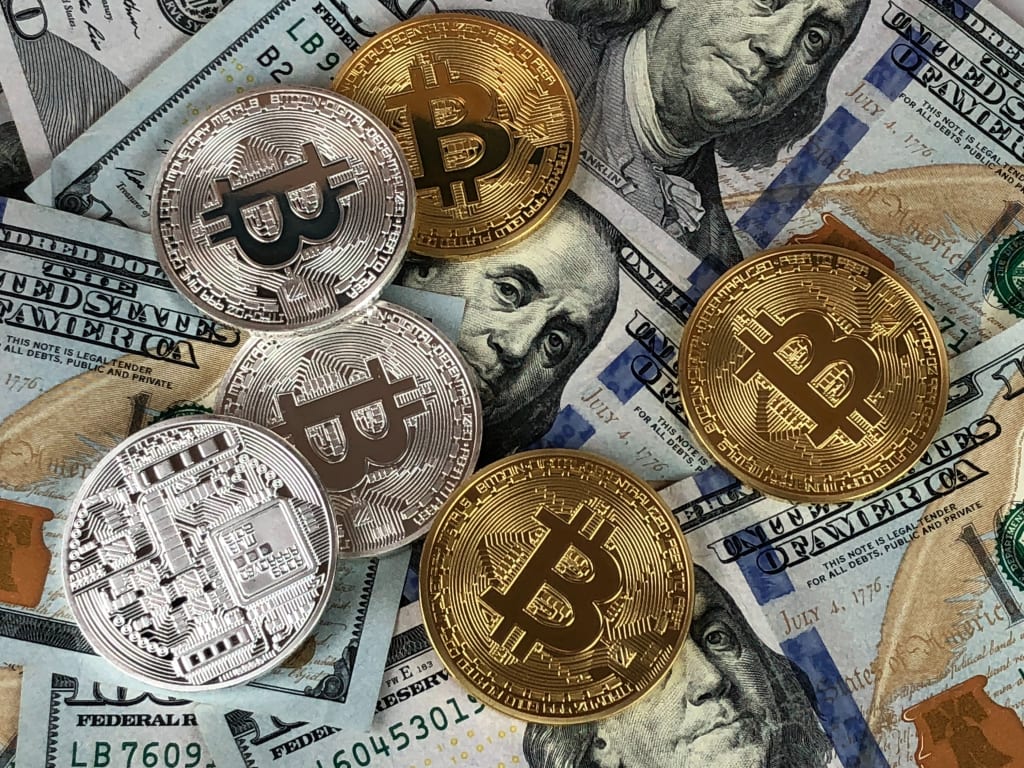Cryptocurrency: The Present of The Future?
What You Should Know about The Future from Now

Understanding Cryptocurrencies
Cryptocurrencies are digital or virtual currencies that use cryptographic technologies to back them up. They make it possible to make safe online payments without the need for a third-party intermediary. Elliptical curve encryption, public-private key pairs, and hashing functions are examples of cryptographic algorithms and strategies that protect these entries.
The term "cryptocurrency" refers to a type of digital money. To process transactions and issue new "coins," they make use of digital cryptography. The decentralized nature of cryptocurrencies such as Bitcoin makes them popular. To put it another way, neither banks nor governments have control over currency access. Governments and banks, on the other hand, have more control over fiat currency. Altcoins are Bitcoin substitutes that number in the thousands. Ethereum and Ripple, for example, have built on Bitcoin's initial model or made distinctions in their currencies to serve specialised applications.
Learn More about Cryptocurrencies...
Types of Cryptocurrency
The most well-known and valued cryptocurrency is bitcoin. Satoshi Nakamoto, a pseudonym, founded it in 2008 and published a white paper introducing it to the public. Today, the market is flooded with thousands of cryptocurrencies.
Each cryptocurrency claims to have its own set of features and specifications. Ethereum's ether, for example, is marketed as gas for the smart contract platform that it underpins. Banks use Ripple's XRP to make cross-border transactions easier.
The most commonly traded and covered cryptocurrency is Bitcoin, which was made available to the public in 2009. Over 18.8 million bitcoins were in circulation as of November 2021, with a total market cap of around $1.2 trillion. There will only ever be 21 million bitcoins. 3
Many alternative cryptocurrencies, dubbed "altcoins," have sprung up in the aftermath of Bitcoin's triumph. Some are Bitcoin forks or clones, while others are entirely new currencies. Solana, Litecoin, Ethereum, Cardano, and EOS are among these cryptocurrencies. By November 2021, the total market capitalization of all cryptocurrencies had surpassed $2.1 trillion, with Bitcoin accounting for roughly 41% of that total. 4
Learn More about Cryptocurrencies...

What Is Blockchain?
Because blockchain technology is what makes cryptocurrencies unique and valuable, if you've heard of cryptocurrency, you've probably also heard of "blockchain." As an example, we'll utilize Bitcoin. In its most basic form, blockchain is a means for keeping all Bitcoin transactions in a ledger that is linked to each coin. Blockchain is essentially a series of programming blocks from a digital standpoint. Dates, hours, quantities, and traders involved are all listed in each block. A chain is made up of all the blocks and acts as a public, but encrypted, database. The Bitcoin ledger is organized thanks to blockchain. The ledger's contents are encrypted with encryption and can be copied to any computer, making it safe from hackers. Forging coins is also difficult due to the usage of cryptography.
Learn More about Cryptocurrencies...
What Drives the Price of Cryptocurrencies?
Simultaneous volatility - The bitcoin market is known for its rapid gains and catastrophic drops. The fact that many coins rise and fall in lockstep is an intriguing aspect of bitcoin.
Media attention - When a currency makes the headlines, an influx of new traders is expected. A gain in value is usually the result of this. Profit-taking is possible for early traders. Other traders become panicked and hurry to sell, causing the price to fall.
Impending Regulation - The possibility of regulation can make cryptocurrency traders nervous.
Coin idiosyncrasies - Each currency is influenced by a unique set of circumstances. Support from the financial sector is the most typical reason for a cryptocurrency's rise in value, however other reasons (such as a security issue) can have an impact on individual coin values.
Learn More about Cryptocurrencies...

About the Creator
Enjoyed the story? Support the Creator.
Subscribe for free to receive all their stories in your feed. You could also pledge your support or give them a one-off tip, letting them know you appreciate their work.






Comments
There are no comments for this story
Be the first to respond and start the conversation.